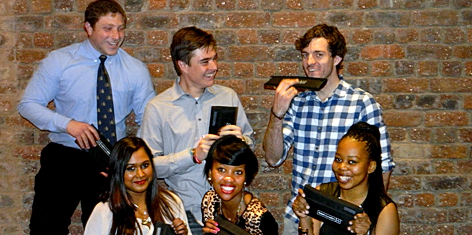Latest News Archive
Please select Category, Year, and then Month to display items
11 January 2021
|
Story André Damons
|
Photo Supplied
 Dr Ralph Clark
Dr Ralph Clark
The Afromontane Research Unit (ARU), the flagship research group of the University of the Free State (UFS) Qwaqwa Campus, has recently been granted R8,4 million to establish a Risk and Vulnerability Science Centre programme.
The Risk and Vulnerability Science Centre (RVSC) programme was established by the Department of Science and Innovation (DSI) as part of the Global Change Research Plan for South Africa and is funded by the DSI through the National Research Foundation (NRF). The RVSC will focus on the need to generate and disseminate knowledge about risk and vulnerability on global change challenges faced by local policy makers/ governance structures and communities in South Africa.
Invited to participate
Dr Ralph Clark, Director of the ARU, says the UFS, together with the University of Zululand and the Sol Plaatje University, has been invited to participate in Phase 2 of the RVSC programme. Dr Clark was approached by the DSI (on referral from the South African Environmental Observation Network – SAEON) in February 2020 regarding the potential for establishing a RVSC at the UFS Qwaqwa campus.
Subsequent interactions were held between the UFS and DSI, and in March 2020, the UFS formally accepted the DSI invitation. It has since been agreed that the RVSC: UFS will be hosted as a RVSC under the ARU umbrella, with dedicated personnel embedded at the UFS in this regard (internal processes and reporting) but reporting directly to the NRF regarding the RVSC.
Interest and support welcomed
Dr Clark welcomed this interest and support from the DSI-NRF, saying that the funds will further assist the UFS in growing its excellent and growing research portfolio and building more research capacity on this traditionally undergraduate-focused campus. “The RVSC will contribute to much-needed solutions in an area marked by major sustainability challenges and will assist in moving Phuthaditjhaba away from its negative apartheid history towards becoming a sustainable African mountain city,” says Dr Clark.
Six of our students on their way to Stanford Sophomore College
2014-08-21

Back, from the left are: Philip Kitsopoulos (BCom Law), Ulrich Kristen (Medicine)
and Stephan Erasmus (Medicine).
The university hosted a send-off function for our students who are about to attend a three-week seminar at Stanford Sophomore College (SoCo).
Six Kovsie students were selected to attend the seminar at the Stanford SoCo in September 2014. This programme is an immersive learning experience where participants attend class meetings during the morning. Their afternoons include class activities, explorations of Stanford, field trips as well as organised events.
UFS students were invited to apply for one of six SoCo courses in February 2014. After months of apprehension, the successful Kovsie applicants were announced in May this year.
These outstanding Kovsie students and the courses they will attend are:
- Sebabatso Makafane, Vuyisile Kubeka and Philip Kitsopoulos – New Millennium Mix: Crossings of Race and Culture;
- Ulrich Kristen – Resistance Writings in Nazi Germany;
- Kaylene Pillay – Ghost Stories: Why the Dead Return and What They Want From Us; and
- Stephan Erasmus – Responses to the AIDS Epidemic.
During the farewell function, Rudi Buys: Dean of Student Affairs, handed the students their flight tickets and visas. This was followed by messages of support from Dr Lis Lange, Directorate for Institutional Research and Academic Planning, and Prof Neil Roos from the Centre for Africa Studies.
Prof Roos concluded the evening’s programme with some advice for these students. “Don’t go there and come back to copy the students and personalities you meet there. Go there and show your own characteristics to them.”
The six Kovsies will depart on 29 August and return home on 19 September 2014.